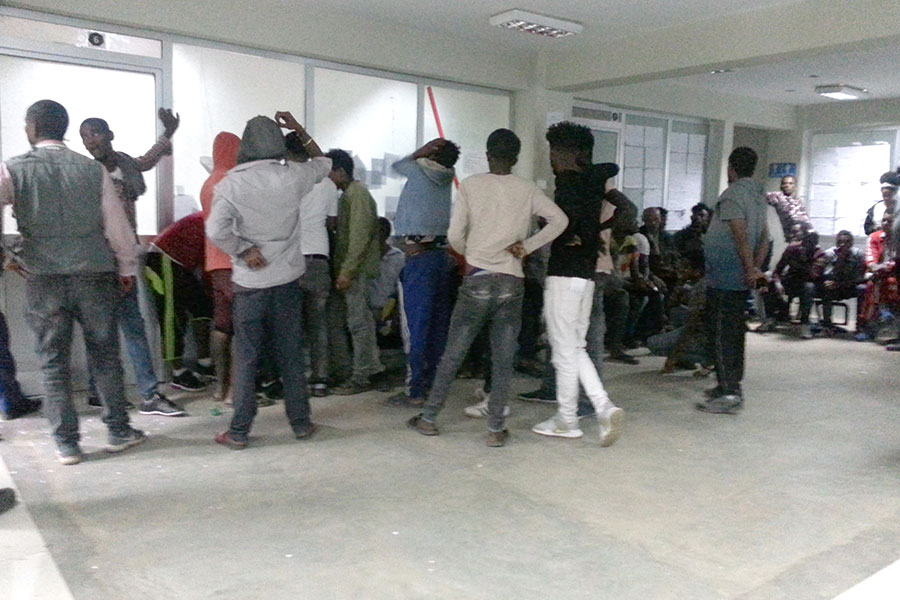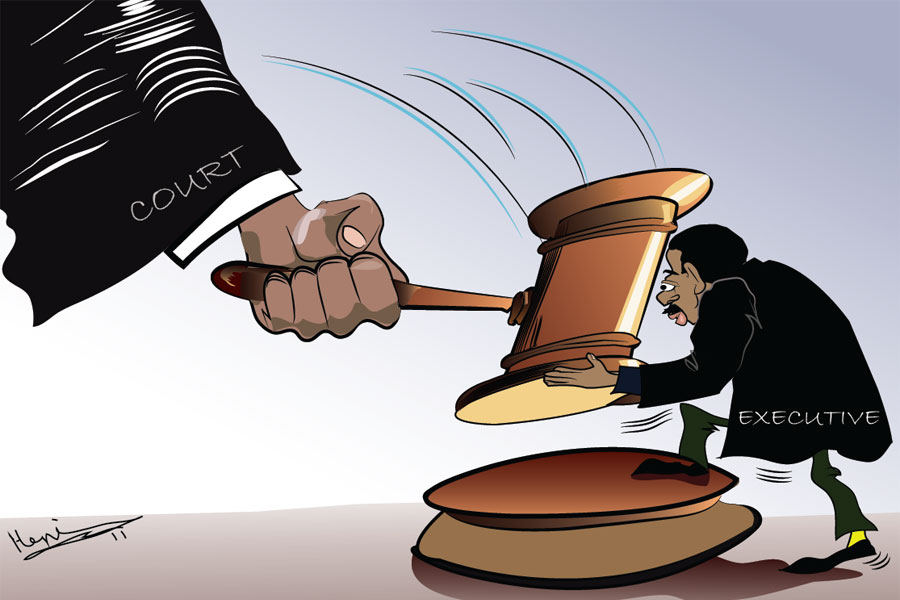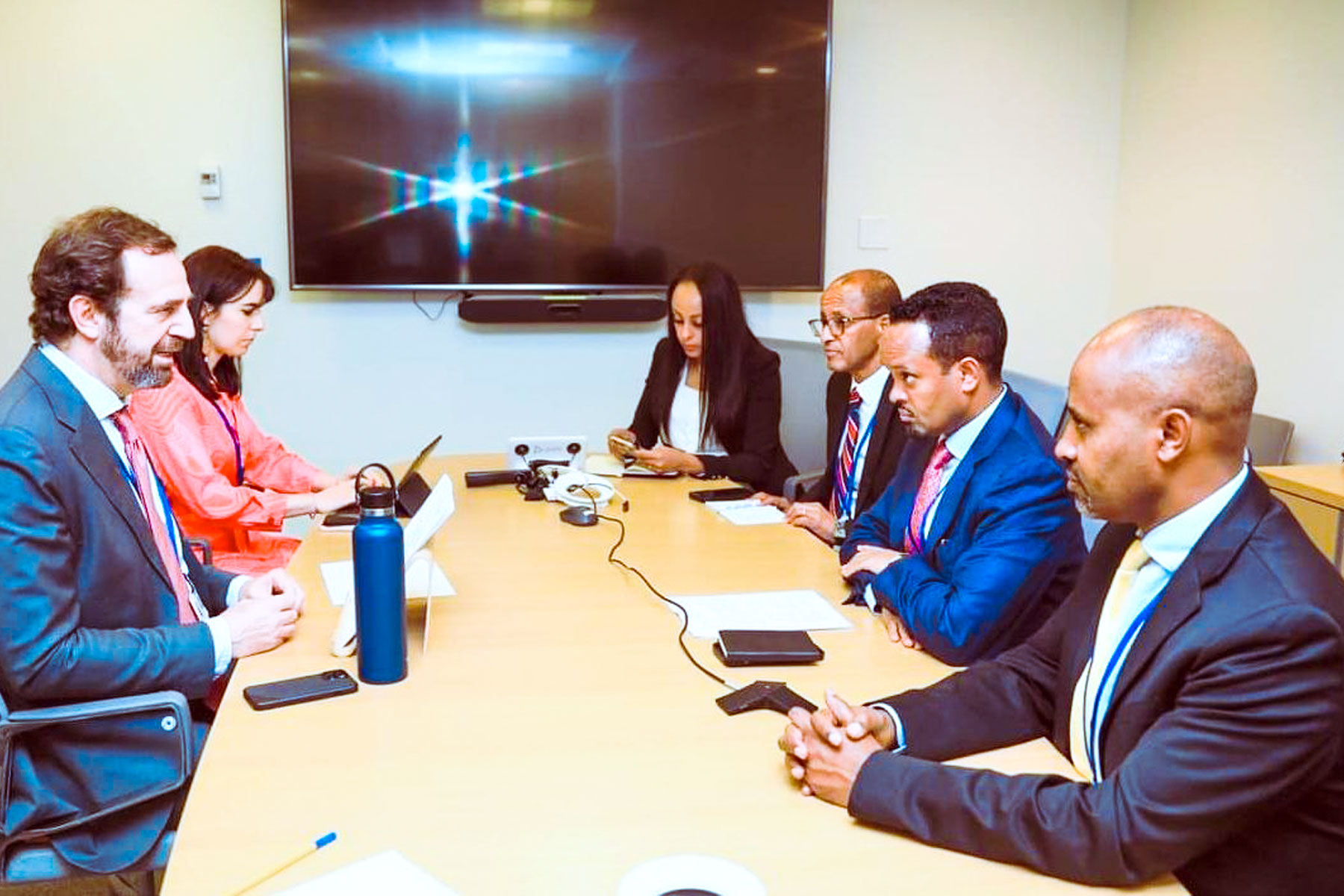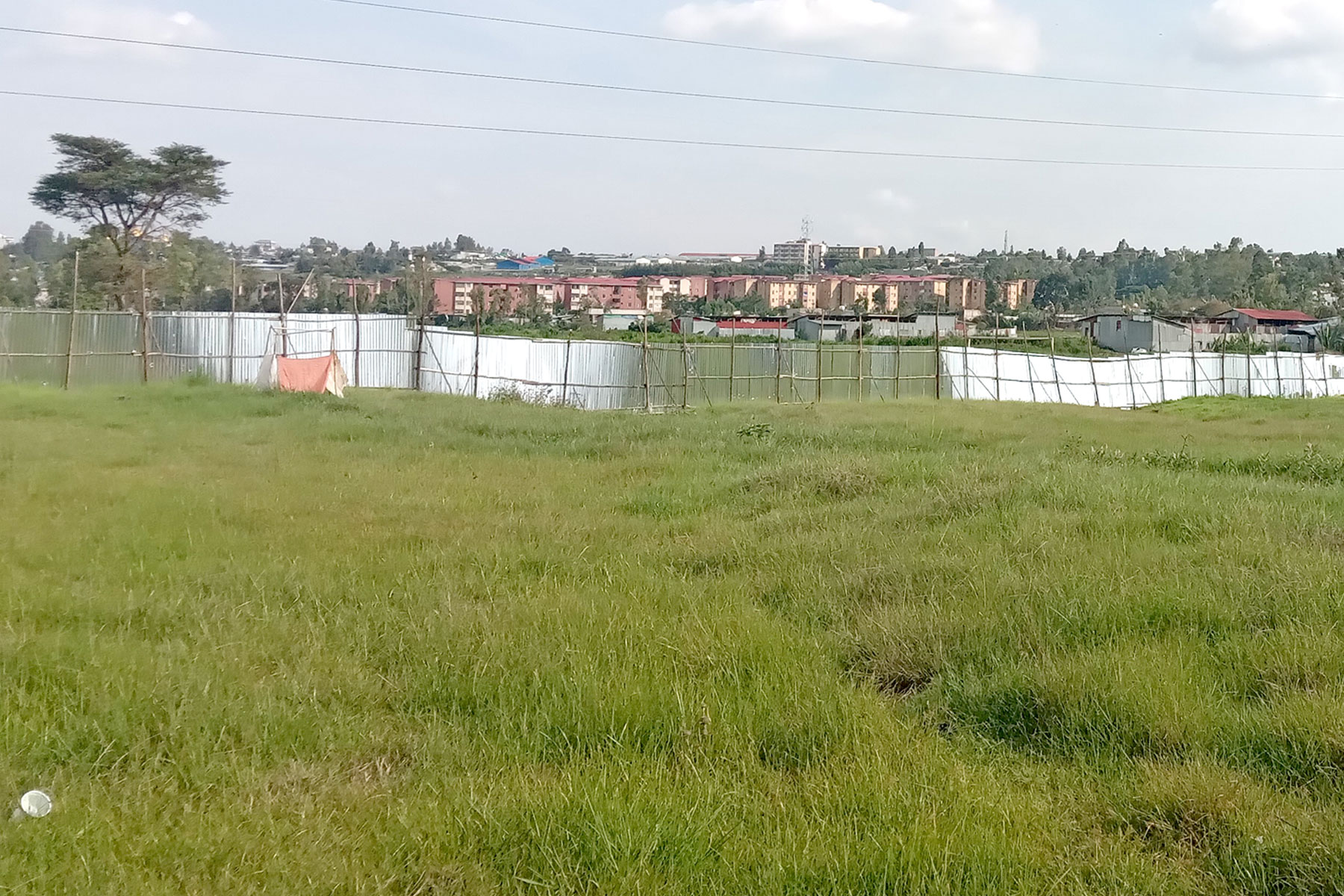
Oct 19 , 2019
By Eden Sahle
If you have visited district or weredaoffices needing some service, chances are you have experienced an awful lot of distress and unprofessionalism. More often than not, these difficulties stem from the staff’s unwillingness to work and not having the right skills to provide reliable customer service.
I have been trying to renew my local identification card at my district for the past two months without success until now. When I first went to the office, they told me to fill out a form that was printed on top of other non-related information. It did not bother me at all, as I thought the weredaoffice might be saving paper expenses. After filling out the form, I was expecting to get my identification card, as I used to but was told to, come back after 10 days.
I was very surprised and asked how the process of renewing an identification card by checking information that is already in their database can take this long. The staff explained I need to bring a document that shows my blood type and provide my fingerprints. I often carry my Red Cross blood donation card with me, hence I was able to provide my blood type and was willing to give my fingerprints. Still I was told to come back ten days later, because that is how the office operates. I came back ten days later hoping to finish my process. Instead I found more problems.
I had to wait 20 minutes until two staff members stopped chatting with each other. There was a long queue of people, most of them elderly. The ladies could not care less about us and carried on with their non-work-related private conversation. After a while, when I realized they would not take a break anytime soon, I apologized for interrupting their conversation. In Amharic I explained that I came back after ten days as told to finish the process of renewing my identification card. One of the ladies looked at me and said there was no diaspora window here. I politely clarified that I am not diaspora and reminded her they already have my data. As I stood there speechless, she started telling me how complicated and time taking the service they provide is, and I should come daily and try my luck.
I could not tell whether what she was saying was due to lack of awareness or skill. But I was curious, and I asked the lady why they collect blood type and fingerprints?
All she could tell me was they are told to do so. Given the vitality of our personal data and lack of clarity for what it is intended for, it is petrifying to know it is managed by public service employees who demonstrate high levels of unprofessionalism and lack of skill. It is saddening why the tradition of abusing customers and their time with an inefficient system is allowed to continue.
Triggered by lack of skills and rampant abuse of public resources, bribery gets things done much more quickly. These are terrifying things customers are expected to do for asking a service they are entitled to as citizens.
Apart from the impoliteness, glaring mistakes are committed at every department because of the lack of skill and knowledge of procedures. Sadly, most public servants are not up to their task, let alone to the expected standard. Waiting in confusion is a typical experience for the service needing pubic.
At the very least, the public service sector should be advocates of the values of integrity, professionalism, neutrality and fairness. Doing one's job is not for others but for ourselves, because it is when we do our jobs, that we scale up the promotional ladders and upgrade our skills. Being dormant harms the person the most.
Such unprofessionalism is ingrained in the civil service, creating a petrifying countrywide consequence. In a country where 19pc of the adult population is unemployed, having a job should create gratefulness and integrity, not to mention professionalism. This is one of the biggest hurdles that is sinking the country deep into poverty. Those at work with their inefficiencies are closing the door for the unemployed, because the more the country remains uninspired about work the more the economy dawdles instead of creating jobs.
This is one of the many things where the state needs to step up to practically repair. Going with the flow, ignoring the matter will hurt us all. Work is not just where we get our paycheck and spend most of our time, but it is also where we serve the nation and leave a better country for future generations.
This poor work ethic will never solve itself. It should receive ample attention by the government, policy makers, employees and the public. Solutions include upholding literacy, transparency, attentiveness, punctuality, effectiveness and impartiality. These administrative structures with strict implementation strategies can function as the pillars of the state in executing strategies for the economic evolution of the country.
Introducing the culture of accountability and professionalism is what leads to the solution. Instead of letting the problem get out of control, let us all strive for professionalism to grow productivity at the country level. Ignoring it, on the other hand, will continue to affect the national economy.
The state, as the guardian of public resources and protector of citizen interests, should not shrink from this fundamental responsibility.
PUBLISHED ON
Oct 19,2019 [ VOL
20 , NO
1016]

Films Review | Sep 10,2022

My Opinion | Oct 09,2021

View From Arada | Jul 02,2022


Agenda | Jun 15,2019

View From Arada | Apr 11,2020

Editorial | Feb 09,2019

Films Review | Jan 25,2020

Sunday with Eden | Oct 23,2021

Sunday with Eden | May 13,2023

Photo Gallery | 96567 Views | May 06,2019

Photo Gallery | 88846 Views | Apr 26,2019

My Opinion | 67142 Views | Aug 14,2021

Commentaries | 65752 Views | Oct 02,2021

Feb 24 , 2024 . By MUNIR SHEMSU
Abel Yeshitila, a real estate developer with a 12-year track record, finds himself unable to sell homes in his latest venture. Despite slash...

Feb 10 , 2024 . By MUNIR SHEMSU
In his last week's address to Parliament, Prime Minister Abiy Ahmed (PhD) painted a picture of an economy...

Jan 7 , 2024
In the realm of international finance and diplomacy, few cities hold the distinction that Addis Abeba doe...

Sep 30 , 2023 . By AKSAH ITALO
On a chilly morning outside Ke'Geberew Market, Yeshi Chane, a 35-year-old mother cradling her seven-month-old baby, stands amidst the throng...

Apr 20 , 2024
In a departure from its traditionally opaque practices, the National Bank of Ethiopia...

Apr 13 , 2024
In the hushed corridors of the legislative house on Lorenzo Te'azaz Road (Arat Kilo)...

Apr 6 , 2024
In a rather unsettling turn of events, the state-owned Commercial Bank of Ethiopia (C...

Mar 30 , 2024
Ethiopian authorities find themselves at a crossroads in the shadow of a global econo...

Apr 20 , 2024
Ethiopia's economic reform negotiations with the International Monetary Fund (IMF) are in their fourth round, taking place in Washington, D...

Apr 20 , 2024 . By BERSABEH GEBRE
An undercurrent of controversy surrounds the appointment of founding members of Amhara Bank after regulat...

An ambitious cooperative housing initiative designed to provide thousands with affordable homes is mired...

Apr 20 , 2024 . By AKSAH ITALO
Ethiopia's juice manufacturers confront formidable economic challenges following the reclassification of...